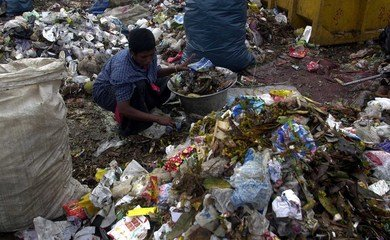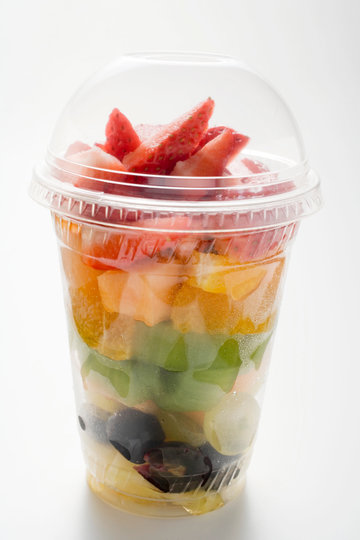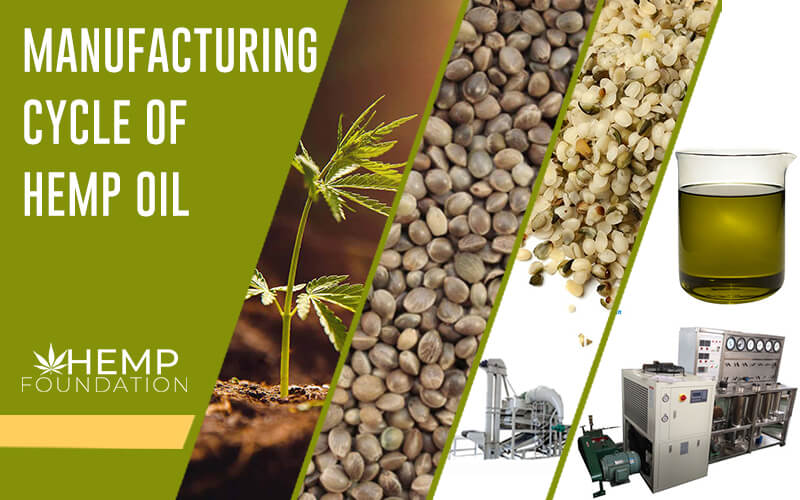How Can Hemp Mitigate The Perils of eCommerce Plastic Packaging?
[vc_row][vc_column][vc_column_text]
Your online orders are damaging the planet. The plastic packaging used by eCommerce store owners is dangerous. Hemp can help mitigate the damage. Read on to learn how.
The pleasure of unboxing a new gadget.
Peeling away the bubble wrap from a delicate product.
Ripping open the pack that has your favorite snacks inside.
These feelings cannot be explained in words. You need to experience it to understand it.
And I’m sure you would know the feeling. Almost everything can be ordered online. And within a few days, a nicely packaged parcel will be sitting on your doorstep. Waiting to be unraveled
The COVID-19 pandemic just made eCommerce deliveries a norm.
The convenience is unmatched.
But the environmental impact? Disasterous.

eCommerce packaging is creating more waste now than ever. And that waste is damaging the planet. Our planet, its co-habitants, and WE are at risk.
Plastic (and many other materials) used in packaging serve little purpose after a product has been delivered. They are discarded, and land in either oceans or landfills.
Either way, they are harmful to the environment.
But hemp isn’t.
Hemp plastic, hemp fabric, and hemp paper are excellent eco-friendly alternatives to plastic, metal, paper, cardboard, and all other types of packaging materials that we use today.
But hemp lacks widespread acceptance.
Why?
Hemp cultivation isn’t legal everywhere.
The masses equate hemp to marijuana.
And businesses aren’t ready to walk the extra mile to procure hemp packaging material for legal sellers.
Out of the 380 million tons of plastic we produce each year, the packaging industry uses 40% of it. And only 9% of plastic gets recycled.
We cannot let it continue.
Okay. How about the cardboard tetra pack carton? Instead of plastic poly bags to pack things, we can use those cartons, right?
FYI, those tetra paks are lined with plastic.
They cannot be reused at home.
Their recycling process is tough.
And they’ll probably just add to the already overflowing landfills.
How about metal packaging for everything? Metal can be recycled indefinitely. Problem solved.
Not so soon.
25% of the time packaging never actually gets recycled.
The figure is as high as 50% for aluminum packaging.
Glass containers? They are a little delicate to handle, but they are also recyclable and usable at home? We can use it at least for food items, right?
The environmental (and literal) cost of transporting a glass bottle is way more than a plastic bottle. The carbon emission offsets the benefit that we’d potentially get by recycling glass.
Manufacturing glass requires firing up industrial-level furnaces. That’s polluting.
And glass contaminated with food is tougher to recycle. The cost far outweighs the benefit.
Paper packaging? There can be nothing wrong with my online orders wrapped in plain, simple paper.
Actually, there is a lot that’s wrong with that too.
Manufacturing a paper bag consumes four times as much energy as manufacturing a plastic bag.
Even recycling paper bags (if they actually reach recycling centers) is significantly more energy-consuming than recycling the same amount of plastic.
So, then what?
Should we start getting our orders without packaging?
Let’s do away with evil altogether.
To be honest…
Packaging Isn’t The Villian Here. You Are
Packaging is important.
Did you know 30% of food items would perish before even reaching the shelves without proper (plastic) packaging?

And your gadgets need the safety of that bubble wrap when getting delivered to you.
Packaging keeps all your orders safe from in-transit damage.
Plus, brands need packaging for branding.
Packaging is not at fault. You are.
Instead of using polluting materials for packaging, why cannot you, me, and everyone else switch to hemp?
The only roadblock in between the switch is a lack of information.
Apprehensive about whether hemp can mitigate the perils of eCommerce packaging pollution?
Be rest assured that it can.
It isn’t marijuana. Its THC content is less than 0.3%, which makes it 100% non-psychoactive.
More and more governments are also realizing the multidimensional benefits of the super crop and are legalizing it.
Let’s break the barriers of misinformation and missing information today.
Here’s how hemp is the solution to the perils of packaging.
Hemp – Packing A Powerful Punch Against The Pollution

Hemp is a crop, which makes it biodegradable. It won’t clog our waterways. It won’t land in landfills. And it won’t destroy our oceans.
It is an unusually strong material, too, given that it’s a plant product. It is extremely durable, which makes it fit for reuse at home too.
And did you know the hemp crop is resistant to pests and diseases? It needs no chemical additives to produce a bumper yield.
Its antimicrobial capabilities will also make for safe packaging options.
Also, it is a fast-growing crop. Its growth cycle is between 90 to 120 days long. It’s the only thing that matches the pace of our ever-growing packaging requirements.
We’ll always be hungry for more. Hemp can satiate that gluttony.
So do we just keep growing hemp everywhere? Would that be eco-friendly? Won’t hemp cultivation have an impact on the environment?
Hemp cultivation is one of the most NON-polluting processes known to humankind. Hemp sequesters more carbon dioxide while it is in the field than what is generated while processing it.
And we don’t have to grow it everywhere. One acre of hemp farm yields 1300 pounds of fiber. That’s huge when compared to not even 800 pounds of cotton that is produced in an acre.
So there is nothing wrong with hemp? Not even one flaw?
No. Not even one flaw.
In fact, hemp uses very less water and grows almost everywhere. Thus, hemp cultivation in areas where nothing else can grow provides locals with employment and financial stability.
It not only cuts down pollution and our carbon footprint but also does social good.
So do we just start wrapping everything in hemp leaves or what?
No, not hemp leaves.
Hemp can be used for packaging in three forms. There is hemp paper to wrap what can be wrapped. Hemp fabric for products that don’t need boxes. And, of course, hemp-based plastic for everything else that needs to be packed.
Let’s take a look.
Hemp Paper – Like Regular Paper, But Better
Both hemp fiber and pulp can be used to produce hemp paper. The paper made from the pulp is softer and more suitable for regular use. And the hemp fiber paper is stronger and tougher.
Want to deliver a beautiful shirt? Hemp paper from the pulp can be used to wrap it. The paper won’t turn yellow either, and because it is much stronger than regular paper, it will keep reminding your customers about you and your brand for longer.
Want to use paper packaging for items labeled handle with care? Hemp paper from the fiber will keep everything inside safe.
Unlike paper from wood pulp, hemp paper doesn’t even need bleaching. It is naturally brighter. This saves the planet from dioxin pollution. Dioxin is a poisonous gas released in the bleaching process.
Hemp paper is even more durable than regular paper. This slows down the decomposition process and makes your paper packaging sturdy and long-lasting.
Also, you can use hemp paper up to seven times. Compare that to the fact that regular paper can be recycled only thrice. Thus, hemp is better than wood paper, even if it isn’t sent to a recycling center.
Did you know the first known use of hemp was in 200 to 150 BC in China?
Even the American declaration of independence is written on hemp paper.
So we aren’t trying out anything new.
It is not an experiment with a possibility of failure.
We are just going back to our old ways, which we know are less polluting.
Hemp Fabric – Strong, Stylish, And Sustainable
Cloth packaging isn’t very popular. I know. But it should be.
Picture this. A beautiful flower vase comes wrapped in a fabric printed with small flower motifs.
Or kitchen essentials, spoons, plates, and bowls that come wrapped in fabric packaging, keeping them safe.
And if the fabric used is made of hemp, it would be even better. For you, your customers, and the environment.
The sustainable and renewable hemp fabric is antimicrobial, so it will keep the product safe too.
An idea that often crosses my mind – hemp in food packaging.
Imagine you are at a drive-through. You order a burrito. Or a roll. And it comes wrapped in hemp cloth. You have your roll; you can wipe your hands with it and then wash it when you go home. And then use it again to wrap lunch for the kids later.
Simple, effective, affordable, reusable, and sustainable.
And did I tell you that hemp fabric gets softer with wash and use? So everyone who receives your hemp cloth packaged products will be able to use not just your product for longer, but also the packaging.
Less packaging waste in the dumps. And significantly reduced levels of packaging pollution.
Hemp Plastic – The Bioplastic That Holds The Potential To Change The World
Plastic is a versatile material. It can be used for literally everything. Plastic surrounds us.
Life (and packaging) will be difficult if not impossible without it. Until recently, we could only wish to be able to use plastic in packaging but not face the pollution problems that it poses.
Hemp plastic is the answer to our prayers. It can be in all the places where we use plastic in packaging. But it won’t pollute the land, water, and air. That’s because it is 100% biodegradable.
Benzene, Toluene, and the many other poisonous -ene derivatives found in plastic aren’t present in hemp. It also doesn’t use any petroleum in the manufacturing process. It just uses cellulose from the hemp plant. That guarantees no toxicity in the production of hemp packaging material.
When we grow the hemp plant to get the cellulose requires for hemp bioplastic, the process requires 22 to 45% less energy than the non-renewable sources of plastic.
Another advantage of this eco-friendly plastic is that it has a high density to weight ratio. This means it is lightweight. So packaging material made of hemp plastic won’t make the parcel bulky or more expensive to transport.
Plus, it is extremely durable. Hemp plastic is five times stiffer and 2.5 times stronger than regular plastic.
So no breaking and no in-transit damage to either the package or the product inside. Just imagine how much it would help you save by eliminating losses caused by transport damage.
But I am sure hemp packaging would be expensive. Won’t it negatively impact business?
Hemp paper and fabric aren’t much expensive when compared to their regular counterparts. But the same cannot be said for hemp plastic. It is, in fact, costlier.
To cover that cost, either you can cut down on your profit margins or charge your customers more.
Both sound unlikely to be good for business, right? But…
Your Customers Are Ready For The Change
That’s the reason why 74% of customers in a study said that they were willing to pay extra for sustainable packaging.
Not just that, 60% of the consumers said they wouldn’t buy products that came in harmful packaging.
Take this as a public mandate pushing you towards change.
In a highly competitive market where competitors are right by your heels, sustainable, non-polluting, and eco-friendly hemp packaging can be a positive differentiator for your brand.
It is good for the environment. It is good for society. And it is good for your business too.
Make sure that the surge in eCommerce deliveries doesn’t translate to a surge in pollution problems for the planet.
Adopt hemp packaging to start doing your bit today.
=================
Sources:
- https://www.greenentrepreneur.com/article/323992
- https://foodprint.org/issues/the-environmental-impact-of-food-packaging/
- https://supplychain.edf.org/resources/sustainability-101-packaging-waste-the-problem/
- https://theconversation.com/plastic-packaging-is-often-pollution-for-profit-95015
- https://www.nationalgeographic.com/environment/article/plastic-pollution
- https://en.gaonconnection.com/the-pandemic-and-pollution-handling-the-packaging-waste-of-increased-online-shopping-during-covid-19/
- https://www.ecoandbeyond.co/articles/the-impact-of-packaging-on-the-environment/
- https://protega-global.com/2021/02/09/10-daunting-plastic-packaging-statistics
- https://plasticoceans.org/the-facts/
- https://ribble-pack.co.uk/blog/plastic-packaging-statistics
- https://cannabisindustryjournal.com/feature_article/sustainable-hemp-packaging-is-the-future-of-industrial-packaging/
- https://packagingguruji.com/hemp-plastic/
- https://www.packagingconnections.com/blog-entry/hemp-bioplastics-packaging.htm
[/vc_column_text][/vc_column][/vc_row]



